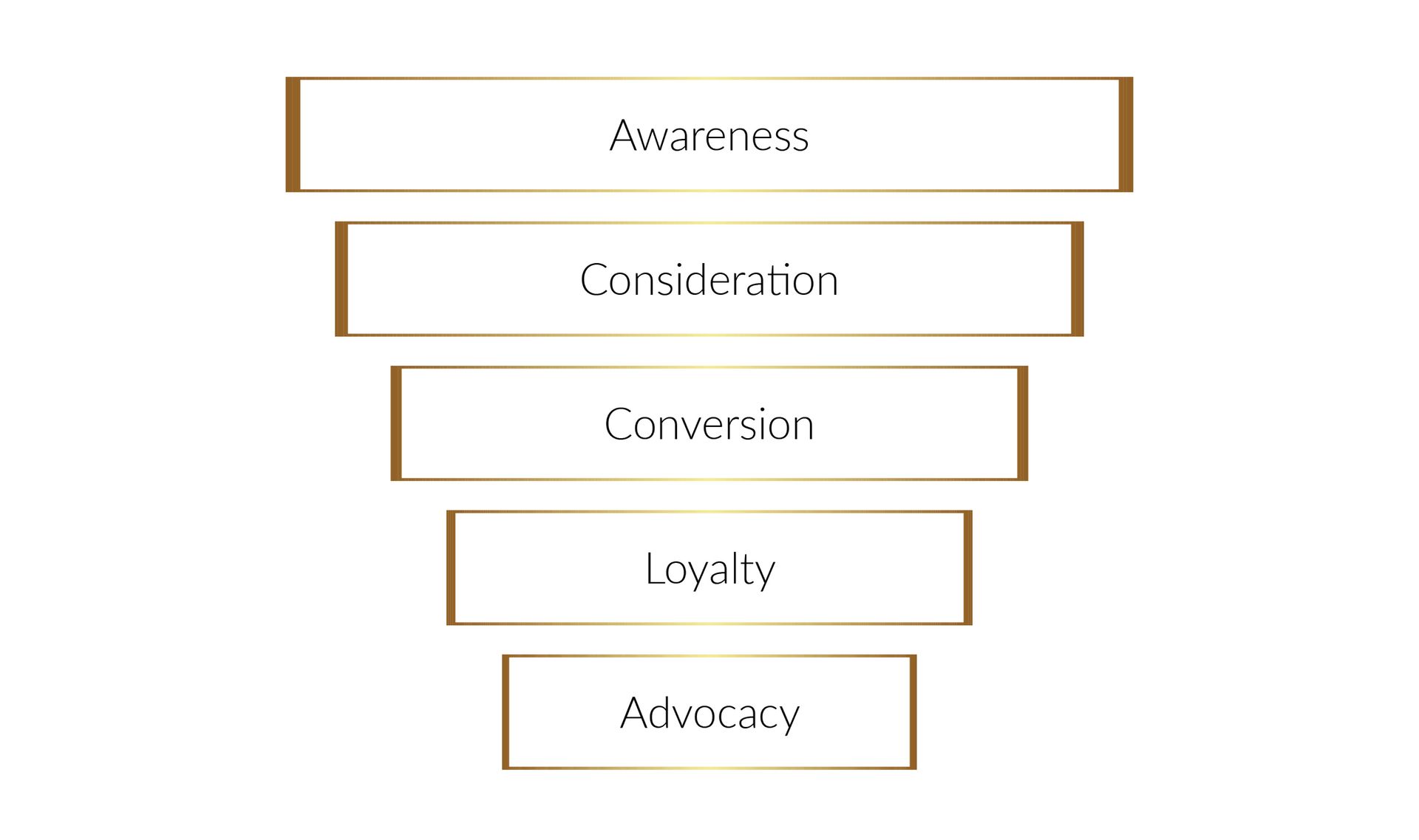Pregnant Workers Fairness Act Final Regulations
What does the Pregnant Workers Fairness Act do?

Embarking on the journey of pregnancy is a profound experience, filled with moments of joy, anticipation, and perhaps a touch of trepidation. It is like stepping into a whirlwind of emotions and physical changes. As I reflect on my own experiences carrying twins to term, I'm reminded of the sheer resilience and strength required to navigate each trimester with grace and determination. From the initial excitement of discovering the pregnancy to the challenges of managing swollen legs and endless bathroom runs during crucial meetings, every moment was a testament to the incredible journey of motherhood.
Pregnancy isn't just a physical journey – it's a deeply emotional and psychological one as well. As I juggled the demands of work and pregnancy, I often found myself grappling with fatigue, discomfort, and the constant worry of balancing professional responsibilities with the needs of my growing family. I vividly recall moments of exhaustion so profound that I considered stashing a sleeping bag in my office for a much-needed nap during lunch hour, and the challenges of navigating campus terrain with swollen legs just to attend a meeting.
As I navigated the demands of work while pregnant, I was fortunate to have understanding manager and colleagues who accommodated my needs with empathy and flexibility. From providing additional breaks for bathroom runs to adjusting meeting schedules to accommodate my fatigue, their support was instrumental in allowing me to balance my professional and personal responsibilities.
However, I know not every pregnant worker has received the same treatment. This is where the new Pregnant Workers Fairness Act (PWFA) comes into play effect June 27, 2023. On April 15, 2024, the EEOC issued its final regulations on what employer responsibilities under the law. The legislation requires covered employers to provide reasonable accommodations to pregnant employees, unless doing so would cause undue hardship. This includes adjustments such as flexible breaks, modified work schedules, and temporary reassignment. Its primary goal is to prevent discrimination against pregnant workers in the workplace and ensure they receive the support they need to maintain their health and well-being during pregnancy.
Under PWFA, Employers are required to reasonably accommodate, for example
- Offering additional, extended, or more flexible breaks to allow for hydration, eating, resting, or using restroom facilities.
- Adjusting food and beverage policies to permit the use of personal water bottles or snacks.
- Modifying equipment, tools, or workstations, such as providing a stool for sitting or creating a standing-friendly workspace.
- Adapting uniform or dress code requirements and providing properly fitting safety gear.
- Implementing changes to work schedules, including shortened hours, part-time arrangements, or later start times.
- Facilitating telecommuting options for remote work flexibility.
- Providing temporary reassignment to tasks or roles that better accommodate the employee's needs.
- Granting leave for necessary healthcare appointments related to pregnancy or childbirth.
- Offering light-duty assignments or assistance with tasks involving lifting or manual labor.
- Providing leave for recovery from childbirth or other pregnancy-related medical conditions.
This serves as a foundational list, but it's important to acknowledge that there's a wide array of reasonable accommodations available. Additionally, it's crucial to recognize that these accommodations may require adjustments throughout the course of the pregnancy.
The legislation also specifies instances where documentation is not required to assess reasonable accommodations. These instances include:
- Allowing an employee to carry water and drink as needed in their work area.
- Permitting additional restroom breaks for employees.
- Allowing flexibility for employees whose work involves prolonged standing to sit, and vice versa for those who predominantly sit.
- Granting breaks for eating and drinking as needed by the employee.
Employers must engage in an interactive process with pregnant employees to determine appropriate accommodations, respecting their dignity and privacy throughout the process. It's important to train supervisors and HR personnel on PWFA compliance, ensuring they understand their responsibilities and can respond effectively to accommodation requests.
These final regulations go into effect on June 18, 2024, sixty days after they are published in the Federal Register.
What are employers doing under the Pregnant Workers Fairness Act (PWFA)?
- Update your discrimination section of your handbook to include PWFA.
- Create an internal interactive process.
- Train HR team and leaders on the new regulation and your internal processes.
Q&A: Provisions of EEOC’s Final Rule to Implement the Pregnant Workers Fairness Act (PWFA)
What is the Pregnant Workers Fairness Act?
The Pregnant Workers Fairness Act (PWFA) generally mandates that a covered employer must offer a "reasonable accommodation" to address known limitations related to pregnancy, childbirth, or related medical conditions for qualified employees or applicants. This obligation holds unless providing such accommodation would impose an "undue hardship" on the employer.
It's important to note that the PWFA specifically pertains to accommodations only. While the Equal Employment Opportunity Commission (EEOC) enforces laws prohibiting discrimination against employees or applicants based on pregnancy, childbirth, or related medical conditions, the PWFA focuses solely on ensuring reasonable accommodations.
Moreover, the PWFA does not supersede more protective federal, state, or local laws concerning workers affected by pregnancy, childbirth, or related medical conditions. In fact, over 30 states and cities have enacted laws requiring employers to provide accommodations for pregnant workers, highlighting the importance of complying with various regulatory frameworks to support pregnant employees in the workplace.
Which employers does the PWFA apply to?
The PWFA applies to employers, including unions and employment agencies, as well as to employees, applicants, and former employees who are currently covered by certain laws, including Title VII of the Civil Rights Act of 1964, the Congressional Accountability Act of 1995, the Government Employee Rights Act of 1991, or section 717(a) of Title VII, which pertains to federal employees. Anyone meeting the definition of an "employer" or "employee" under any of these laws is considered as such for the purposes of the PWFA.
When did the PWFA go into effect, and has the EEOC issued a regulation about the law?
The PWFA went into effect on June 27, 2023. On April 15, 2024, the EEOC issued its final regulation to carry out the law. The regulation goes into effect on June 18, 2024.
Is the EEOC accepting charges under the PWFA?
Starting June 27, 2023, the Equal Employment Opportunity Commission (EEOC) commenced accepting charges concerning violations of the PWFA.
It's worth noting that in certain scenarios, employees impacted by pregnancy, childbirth, or related medical conditions might also qualify for accommodation under two other laws enforced by the EEOC: Title VII of the Civil Rights Act of 1964 and the Americans with Disabilities Act (ADA). Consequently, the EEOC will continue to handle and process charges related to insufficient accommodation for pregnancy, childbirth, or related medical conditions under both Title VII and/or the ADA, in addition to the PWFA.
Who does the PWFA protect?
Under the PWFA, reasonable accommodations are offered to qualified applicants or employees who experience known limitations. These limitations encompass physical or mental conditions associated with, affected by, or stemming from pregnancy, childbirth, or related medical conditions.
What does the PWFA prohibit?
Covered employers are prohibited from:
- Failing to provide a reasonable accommodation for the known limitations of an employee or applicant, unless such accommodation would result in undue hardship.
- Mandating that an employee accept an accommodation other than a reasonable one determined through the interactive process.
- Discriminating against a qualified employee or applicant by denying job opportunities based on their need for a reasonable accommodation.
- Compelling an employee to take leave when alternative reasonable accommodations allow them to continue working.
- Engaging in punishment or retaliation against an employee or applicant for requesting or utilizing a reasonable accommodation, reporting or opposing PWFA-related discrimination, or participating in PWFA proceedings.
- Coercing individuals who are exercising their rights or assisting others in doing so under the PWFA.
What other federal laws may apply to workers affected by pregnancy, childbirth, or related medical conditions?
Other laws that offer protections to employees or applicants affected by pregnancy, childbirth, or related medical conditions include:
Title VII: Enforced by the EEOC, Title VII prohibits discrimination based on pregnancy, childbirth, or related medical conditions. It mandates that covered employers treat workers impacted by pregnancy-related issues the same as others with similar abilities or inabilities to work.
The ADA: Also enforced by the EEOC, the ADA safeguards workers from discrimination based on disability. Covered employers are required to provide reasonable accommodations to qualified individuals with disabilities, provided that such accommodations do not pose undue hardships.
FMLA (Family and Medical Leave Act): Administered by the U.S. Department of Labor, the FMLA grants eligible employees unpaid, job-protected leave for specific family and medical reasons, including pregnancy-related issues.
The PUMP Act (Providing Urgent Maternal Protections for Nursing Mothers Act): Enforced by the U.S. Department of Labor, the PUMP Act extends workplace protections to employees who need to express breast milk while at work.
What is a “reasonable accommodation” and what are some examples?
"Reasonable accommodations" encompass alterations in the work environment or standard practices at work. Here are several examples of potential reasonable accommodations under the PWFA:
- Additional, longer, or more flexible breaks for activities like drinking water, eating, resting, or using the restroom.
- Modifications to food or drink policies to permit the use of a water bottle or consumption of food.
- Adjustments to equipment, devices, or workstations, such as providing a stool for sitting or enabling work while standing.
- Amendments to uniform or dress codes or provision of fitting safety equipment.
- Changes in work schedules, such as shorter hours, part-time arrangements, or a later start time.
- Remote work opportunities (telework).
- Temporary reassignment to different tasks.
- Temporarily suspending one or more essential job functions.
- Leave for attending healthcare appointments.
- Light duty or assistance with lifting or other manual labor.
- Leave for recovery from childbirth or other pregnancy-related medical conditions.
It's essential to note that this list only offers some examples, as numerous other reasonable accommodations may be possible. Additionally, a worker's needs for accommodations may vary at different stages during pregnancy or after childbirth.
Does a covered employer have to provide leave as a reasonable accommodation?
Leave can indeed be a reasonable accommodation that an employee may request under the PWFA. However, it's important to note that an employer is not obligated to provide leave, or any other reasonable accommodation, if doing so would result in undue hardship for the employer.
What is “undue hardship”?
Under the PWFA, employers are not required to provide a reasonable accommodation if doing so would result in undue hardship for the employer. "Undue hardship" is defined as significant difficulty or expense. Therefore, if accommodating an employee's request poses a substantial burden on the employer in terms of difficulty or cost, they may not be obligated to provide the accommodation.
Who is a “qualified employee” or a “qualified applicant”?
An employee or applicant can meet the criteria of being "qualified" under the PWFA in two main ways.
Firstly, if an individual can fulfill the "essential functions" of the job, either with or without a reasonable accommodation, they are considered qualified. Essential functions refer to the fundamental duties inherent to the job.
Many individuals seeking accommodations will meet this requirement since they can perform the job or apply for the position with a reasonable adjustment. For instance, a cashier who requires a stool, a production worker needing bathroom breaks, or a retail employee who needs to carry a water bottle.
Secondly, even if an employee is unable to perform the essential functions of their job presently, they may still be deemed qualified under certain conditions:
- If the inability to perform is temporary,
- If the employee could perform the functions in the near future, and
- If accommodating the inability to perform the essential functions is feasible.
In essence, this implies that an employee facing temporary incapacity in performing one or more essential job functions, and thus requiring light duty or a change in work assignments, may be eligible for such accommodations as reasonable measures.
The PWFA requires reasonable accommodation for a qualified employee or applicant with a “known limitation.” What is a “known limitation”?
Under the PWFA, the term "known" indicates that the employee or their representative (or the applicant or their representative) has conveyed the limitation to the employer.
As for the definition of "limitation" under the PWFA, it refers to a physical or mental condition that is related to, affected by, or arises out of pregnancy, childbirth, or related medical conditions.
These limitations can manifest as minor or modest impediments, and they may occur episodically, such as with migraines or morning sickness. Additionally, limitations may necessitate actions to safeguard the employee's health or the health of their pregnancy. For instance, this could involve avoiding exposure to certain chemicals, refraining from working in excessively hot conditions, or restricting certain physical activities like lifting, bending, walking, standing, or running. Furthermore, limitations may also necessitate attendance at healthcare appointments related to the pregnancy, childbirth, or associated medical condition.
What is included in “pregnancy, childbirth, or related medical conditions”?
"Pregnancy, childbirth, or related medical conditions" encompass a broad spectrum of experiences and health considerations. This includes uncomplicated pregnancies, vaginal deliveries, or cesarean sections, as well as occurrences like miscarriage, postpartum depression, and edema. Additionally, conditions such as placenta previa, lactation, stillbirth, and the decision to have or not have an abortion are also included.
Furthermore, conditions like preeclampsia, gestational diabetes, and HELLP syndrome (hemolysis, elevated liver enzymes, and low platelets syndrome) are recognized as having a connection to pregnancy or childbirth. It's important to note that a medical condition can be considered related to pregnancy or childbirth if it emerges during pregnancy, exacerbates existing conditions, or introduces new risks during the pregnancy, childbirth, or postpartum period.
How can workers request reasonable accommodations, and how should employers respond?
When communicating with their employer, an employee or applicant should clearly express any limitations they are experiencing due to pregnancy, childbirth, or related medical conditions, and request necessary adjustments in their working conditions. For instance:
- "I’m having trouble getting to work at my scheduled starting time because of morning sickness."
- "I need more bathroom breaks because of my pregnancy."
- "I need time off from work to attend a medical appointment because of my pregnancy."
Once the employer is made aware of these limitations, they should initiate the "interactive process" with the employee or applicant. This process involves open communication between both parties to discuss the known limitations and determine suitable adjustments at work.
Employers are expected to respond promptly to accommodation requests. Unless providing accommodation poses an undue hardship on the employer's business, they are generally required to provide a reasonable accommodation. This could involve implementing the requested adjustment or offering an alternative solution that effectively addresses the employee's needs.
The Pregnant Workers Fairness Act (PWFA) encourages simple exchanges of information between employees or applicants and employers to facilitate the accommodation process. These exchanges could occur through brief conversations or emails, ensuring that accommodations are swiftly granted where appropriate.
What should employers remember about the PWFA and reasonable accommodation?
Educating supervisors about the Pregnant Workers Fairness Act (PWFA) is crucial to ensuring compliance and fostering a supportive workplace environment. First-level supervisors, in particular, are often the first point of contact for accommodation requests and should be equipped with the knowledge and skills to respond appropriately. Here are some key training points:
Response Training: Train supervisors on how to effectively respond to accommodation requests under the PWFA. Emphasize the importance of promptly initiating the interactive process and avoiding any form of retaliation against employees who request or use reasonable accommodations.
Communication: Workers are not required to use specific language when requesting an accommodation. Supervisors should be trained to recognize accommodation requests and promptly engage in the interactive process upon receiving any indication of a need for accommodation.
Understanding Limitations: Supervisors should understand that limitations related to pregnancy, childbirth, or related medical conditions can vary in severity and may require different types of accommodations. Even minor limitations may necessitate adjustments in the workplace to support affected employees.
Adaptability: Acknowledge that the needs of pregnant employees may change over time. Supervisors should be prepared to reassess accommodations as the pregnancy progresses, as well as during the postpartum period or if the medical condition evolves.
By providing comprehensive training to supervisors, organizations can ensure that they effectively navigate accommodation requests under the PWFA while promoting inclusivity and fairness in the workplace.
Can employers require that the employee or applicant provide information from the employee’s health care provider about the limitation?
Under the Pregnant Workers Fairness Act (PWFA), employers must approach accommodation requests with sensitivity and respect for the privacy of their employees. Here's how the process typically unfolds:
Discussion-Based Approach: In many cases, a simple discussion with the employee may be all that's needed to understand their accommodation needs. Employers should recognize that obtaining supporting documentation may be challenging, particularly in the early stages of pregnancy.
Limited Circumstances for Documentation:
- Employers should only seek documentation from a healthcare provider under specific circumstances and when it's reasonable to do so. For instance:
- If the limitation and need for accommodation are obvious, such as an obviously pregnant employee requiring a bigger uniform, additional documentation may not be necessary.
- If the employer is already aware of the limitation and the necessary adjustment, such as an employee with morning sickness needing a later start time, demanding further documentation is unnecessary.
- Situations involving bathroom breaks, eating/drinking needs, standing/sitting adjustments during pregnancy, or lactation-related accommodations typically do not require documentation.
Employers should adhere to their established policies regarding the requirement for healthcare provider notes, ensuring consistency and fairness in their approach.
Content of Documentation: If documentation is sought, it should be limited to:
- Confirmation of the physical or mental condition related to pregnancy, childbirth, or related medical conditions.
- Verification that the condition warrants the requested accommodation.
- Description of the adjustment or change at work needed due to the limitation, without the need for a formal medical diagnosis.
- Confidentiality: Employers must uphold confidentiality standards, as mandated by the Americans with Disabilities Act (ADA), regarding any medical information obtained during the accommodation process. This ensures that sensitive health-related details remain private and protected.
By following these guidelines, employers can navigate the accommodation process effectively, ensuring compliance with the PWFA while respecting the dignity and privacy of their employees.




